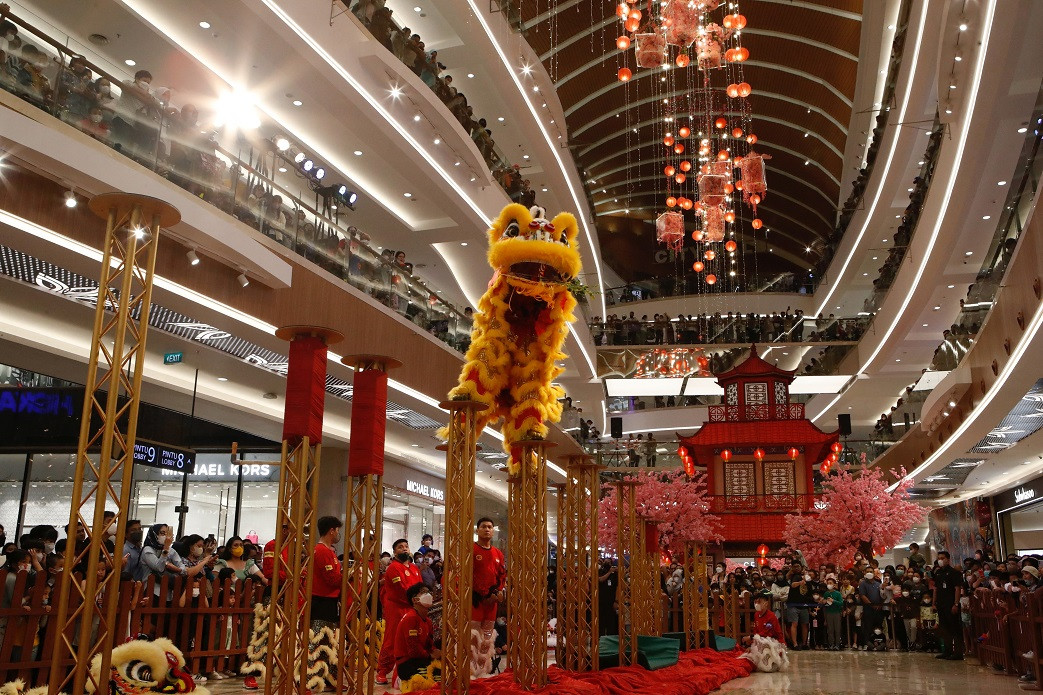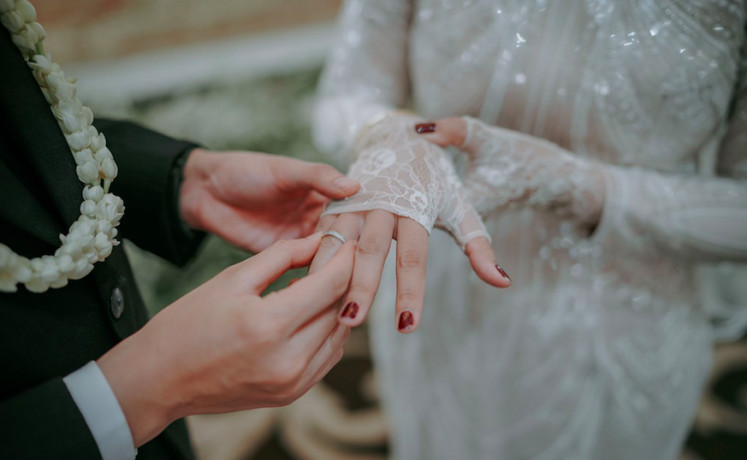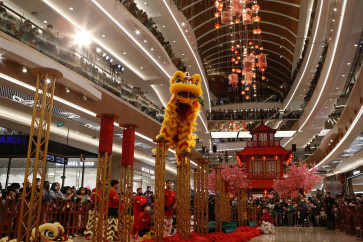Popular Reads
Top Results
Can't find what you're looking for?
View all search resultsPopular Reads
Top Results
Can't find what you're looking for?
View all search resultsChinese-Indonesians rejoice as Chinese New Year festivities return
Change text size
Gift Premium Articles
to Anyone
I
ndonesians celebrating Chinese New Year have welcomed the return of festivities this year along with many of its traditional hallmarks, such as family gatherings and lion dances, as businesses reliant on the holiday have also begun to show signs of bouncing back from the pandemic.
For many Chinese-Indonesians, celebrations of the Lunar New Year center on gathering and giving back to family members. To this end, 79-year-old Max Sutrisman from Tangerang in Banten said on Sunday that he was glad to be able to celebrate the holiday with his family in his hometown of Sukabumi, West Java.
“After the government lifted pandemic curbs [late last year], I felt more confident to travel, since it means that COVID-19 is getting less prevalent. While it was a difficult three years, I was glad to finally meet [my relatives] and share with them some happiness through [giving] hong bao,” he said.
Hong bao, also known as ang pao, is money in red envelopes.
In Semarang, Central Java, Aman Gautama Wangsa, chair of the Khong Kauw Hwee foundation, which schools for children from low-income families, has also decided to celebrate the holiday by giving his students kue keranjang (basket cakes), a Chinese New Year delicacy.
“Imlek celebrations in the past few years have been muted as a result of the pandemic,” said Aman on Thursday. “Now that movement restrictions have been lifted, we are hopeful that this Year of the Rabbit, everything will be better.”

















